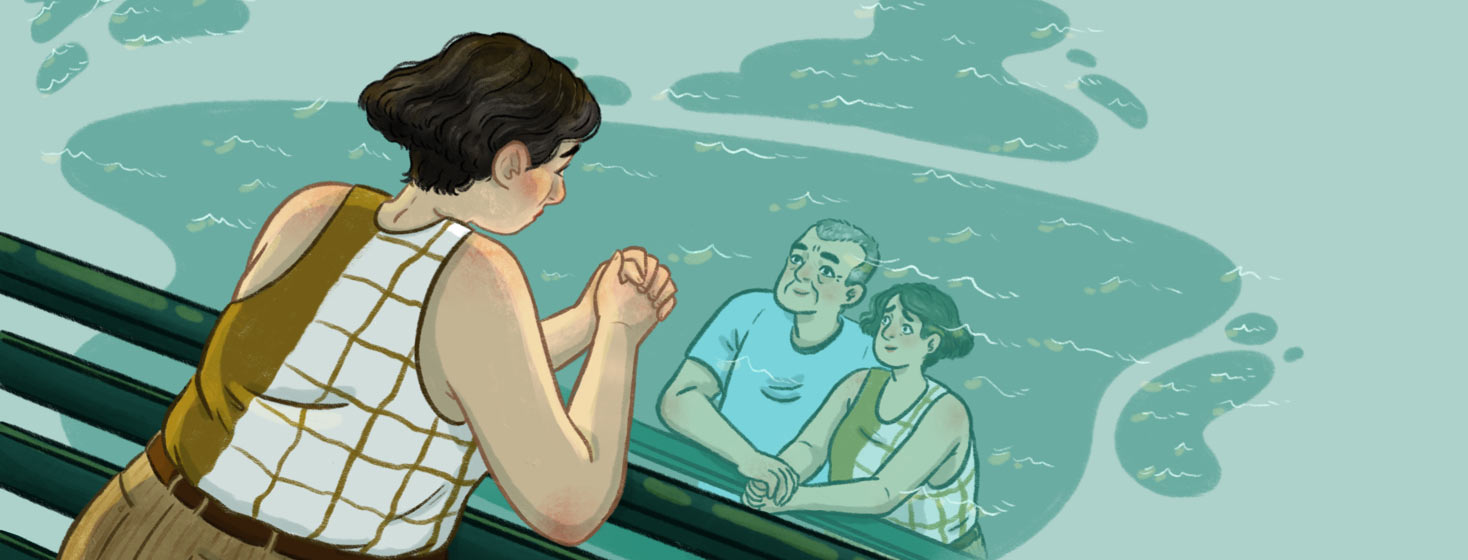How to Navigate Grief with Bipolar Disorder
The goal of managing bipolar disorder is keeping mood swings minimal. Finding a good treatment plan and avoiding triggers is helpful.1,2
Some triggers, like grief, appear suddenly. Mourning can be impossible to avoid or prepare for. Knowing more about grief, bipolar disorder, and the emotional responses to it can prepare you. It is easier to identify mood shifts if they occur.1,2
What is grief?
Grief follows a traumatic event. This event often involves a death. Whether expected or unexpected, death leaves shock waves in a family. Grief is the expression of loss. Grief shows up in physical, psychological, and emotional ways. A person may experience all or only some of these.2
What does grief look like?
Grief takes many forms. Each person experiences grief uniquely. Some ways that grief manifests include:2
- Physical: loss of appetite, crying, change in sleep patterns, lack of energy
- Psychological: depression, anxiety, suicidal thoughts, chronic fatigue
- Emotional: sadness, shock, anger, denial, guilt, relief (after a long illness)
How to handle grief
Navigating through grief takes time. Grieving cannot be rushed. Grief can come and go in unexpected ways. For example, certain dates, images, and scents can trigger memories. And then the memories trigger grief.2-4
Managing grief includes:2-4
- Being patient with yourself. Mourning takes time.
- Taking care of yourself. Eat well, rest, do something physical, keep up with medicines and treatments. Reach out to a doctor if you need help.
- Waiting to make major life changes. Grief can cloud your thinking. Life-altering choices like selling a home, changing careers, or expanding a family should wait.
- Connecting with others. Spend time with those who share your loss. Join a support group for people who are grieving. Talk about how bereavement is affecting you.
Bipolar disorder, loss, and grief
Loss is a trigger for bipolar disorder. There is a high risk for a mental health exacerbation in the first few months after a loss. Mood swings after loss can include mania or depression. Both extremes can show up.4-6
Why can mania happen after a loss?
A lot happens right after a loss. Many decisions must occur in a short period. Planning a funeral, notifying friends and family, and eating healthy all require energy.4-6
Sometimes, a person with bipolar disorder experiences mania quickly after a loss. If they take on a decision-making role, cleaning, cooking, organizing, checklists, and funeral planning become a focus. They may not sleep for several days during this grief mania.4-6
Depressive episode
Following the initial flurry of decisions and funeral, the mania eases. It then swings into a major depressive episode. The numbness of depression descends. The person who was manic several days ago crashes. They have no energy, sleep long hours, and hide away.4-6
Delayed grief
Mania and depression delay grief. Mood swings separate the person with bipolar disorder from feeling grief. Grief cannot get through the fog or mania. It takes time for grief to settle in. Consciously making space to sit with grief is a helpful practice.4,7
Prolonged bereavement disorder
People with bipolar disorder are at greater risk for prolonged bereavement disorder. This is grief that continues to disrupt life a year after a loss. Common symptoms of prolonged bereavement disorder include:7
- Emotional responses to the loss, such as anger
- Feeling unable to engage with friends or hobbies
- Loneliness
- Feeling numb or flat, like you cannot access your emotions
Treatment
Stay consistent with a treatment plan after loss. Make use of therapeutic techniques you find helpful. Pets can be loving companions on the journey through grief.2,3,4,7
Support tools for grief with bipolar disorder
Finding resources to help with grief is vital. If you can, you may want to talk to a grief therapist with knowledge of bipolar disorder. Inform your support people of the potential for mood swings and prolonged bereavement disorder. Ask them to check in with you more regularly following a loss. Inform your medical team and schedule visits with your doctor. Regularly evaluate your bipolar management and treatment plan after loss.2,3,4,7
